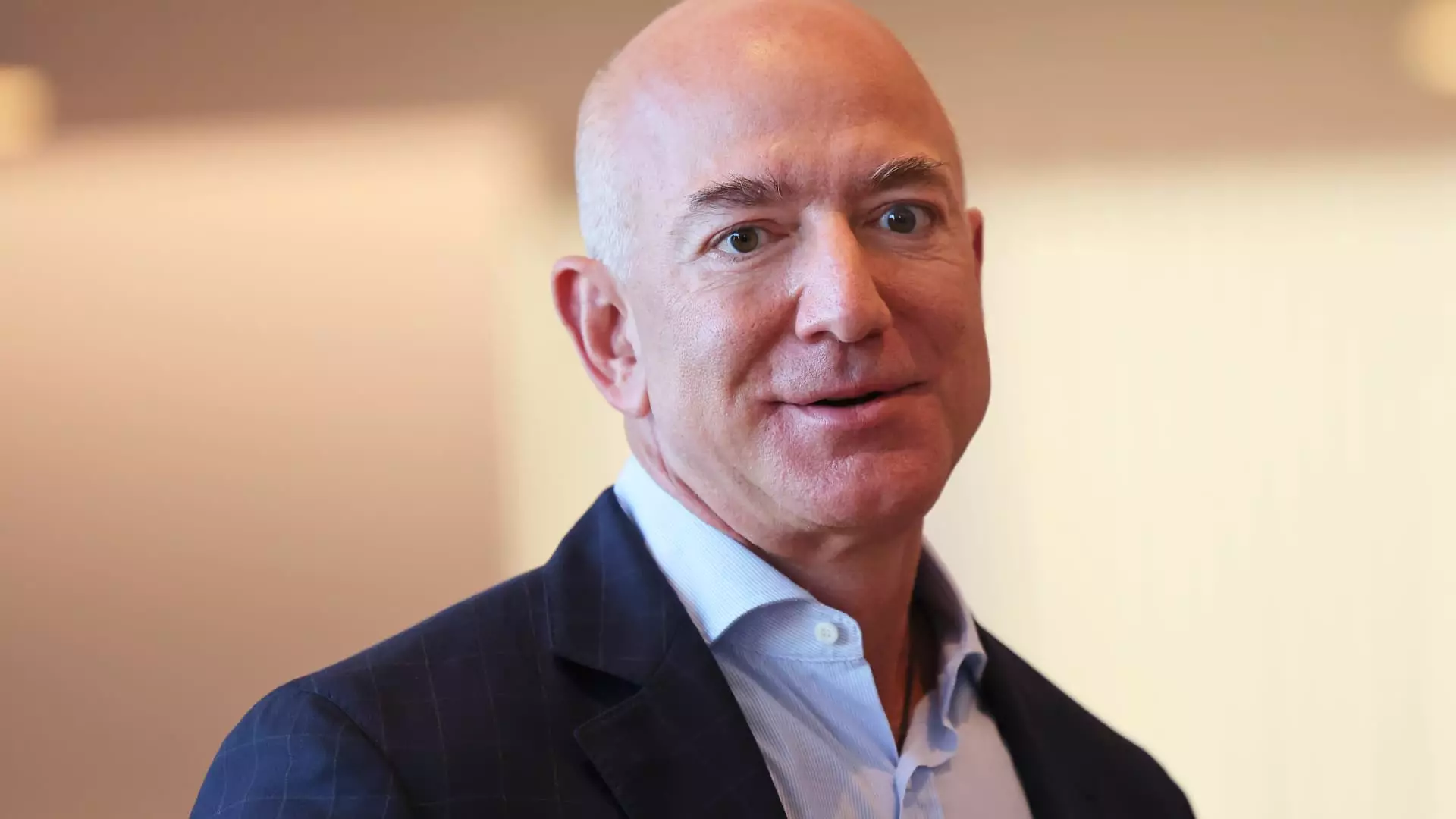In a groundbreaking move that has taken the journalism community by surprise, Jeff Bezos, owner of The Washington Post, recently announced the newspaper’s decision to cease endorsements for presidential candidates. This initiative aims to restore trust in a media landscape that has seen a significant decline in public confidence. Yet, the timing and rationale behind this decision warrant closer scrutiny as it may reflect larger issues within the industry and its relationship with readers.
Bezos articulated that this decision is a “meaningful step in the right direction,” acknowledging the erosion of trust in news media. He confessed that the decision came too late, during a period fraught with electoral emotion, highlighting a lack of foresight in the planning stages. This commentary not only offers a glimpse into internal operations at The Washington Post but also reveals a rising concern regarding ethics and neutrality in contemporary journalism.
Bezos emphasized the futility of presidential endorsements, arguing that they seldom influence undecided voters. He claimed that these endorsements often foster perceptions of bias, which can tarnish the newspaper’s integrity. Indeed, the assertion that endorsements simply create a façade of partiality challenges the effectiveness of traditional media influences in democratic processes. The paradox lies in the fact that what was once deemed an authoritative recommendation has transformed into a point of contention regarding media credibility.
Moreover, the op-ed revealed a striking statistic: the Post lost over 200,000 digital subscribers immediately following the endorsement announcement. This dramatic subscriber drop indicates that the newspaper’s readership is more sensitive to shifts in editorial ethics than previously thought. It’s also a manifestation of a broader distrust in media institutions, one that has been rigorously documented in studies like the recent Gallup poll that ranked media as the least trusted of essential civic institutions. This rapid dismissal of readers raises the question of how The Washington Post intends to address such discontent moving forward.
Bezos called the cessation of endorsements a “principled decision,” but the fallout has been significant. Reports indicate dissatisfaction among the editorial board, resulting in the resignation of three members from the panel—a clear sign that internal consensus on the direction of the publication may be fracturing. The decision has been framed as a move towards objectivity, yet it triggers questions about what constitutes principled journalism in an era clouded by allegations of bias and partisanship.
One aspect that complicates this narrative is the claim that Bezos himself reportedly influenced the decision. According to a prior draft during which an endorsement for Democratic candidate Kamala Harris was prepared, the complete reversal raises eyebrows concerning the independence of editorial judgment. Despite Bezos’ assurances that the decision was not linked to external influences, including a coincidental meeting between a senior executive of Amazon’s space venture and the Trump campaign, skepticism remains.
Rebuilding Trust in Journalism
As Bezos candidly admits, the current media landscape is failing to inspire confidence among audiences. He likens newspapers to voting machines, both needing to project reliability while being perceived as impartial. His acknowledgment of public skepticism is critical; in fact, it may be the first step in a broader dialogue about media accountability and transparency.
Moving forward, The Washington Post must explore alternative avenues to regain reader trust. This could involve engaging in more community-centered journalism, emphasizing fact-checking, and enhancing transparency about editorial processes. While the cessation of endorsements is a pivotal action, it serves merely as a starting point for deeper reform required in the industry.
Ultimately, the decision by The Washington Post acts as a barometer for the media’s relationship with the public as it grapples with change. It underscores not only the need for editorial independence but also the urgent necessity for renewal and rejuvenation within journalistic practices. It remains to be seen whether these efforts will constitute a turning point in the battle to restore credibility in journalism.


Leave a Reply